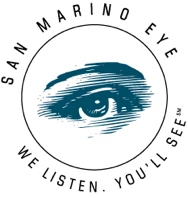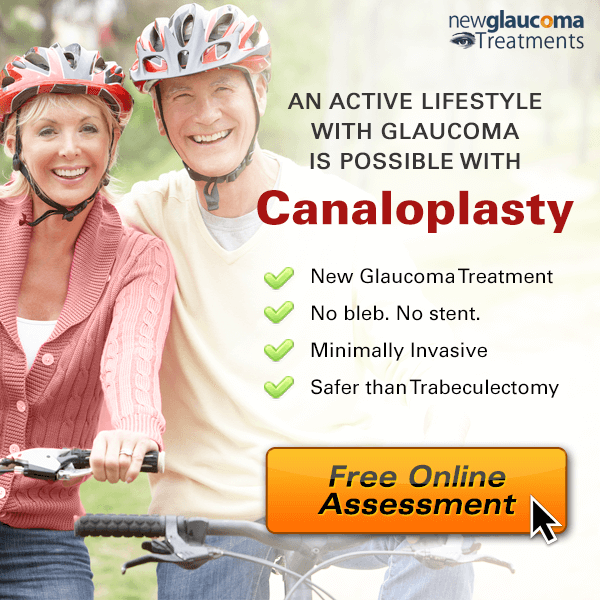ANSWER:
“Will I go blind?” is one of the most commonly asked questions by patients newly diagnosed with glaucoma. There was a time not so long ago when the answer to this question was an unqualified “yes”. Being diagnosed with glaucoma in the early 20th century meant that you were going to face eventual blindness. Effective treatments were not developed until the mid-20th century. Even those worked poorly or were associated with near intolerable side effects until about 40 years ago. Modern medicine has made great strides in both medical and surgical treatment of this condition but we are still far from a cure. Indeed, the best we can currently hope for is to slow down the loss of vision.
If we cannot completely halt the loss of vision from glaucoma, how effective are modern treatments at limiting vision loss? One very well-respected study called the Early Manifest Glaucoma Trial (EMGT) took a look at this issue. At first blush the results do not appear to be encouraging. About 60% of patients diagnosed with glaucoma eventually lost some vision. It’s important to emphasize, however, that this does not mean that 60% of patients went blind.
A century ago someone who went blind from glaucoma had likely lost all functional vision. Today, however, we define blindness a bit differently. A commonly used definition is that of the World Health Organization (WHO) which defines blindness as either vision worse than 20/400 or with less than 10 degrees of central vision remaining. Many people who fit this definition of blindness are still able to function though often with visual aids as well as other assistance.
So most people who develop glaucoma and receive treatment in the 21st century do not go blind from glaucoma. But some do. Are we getting better at preventing blindness from glaucoma? It seems we are. In 2014 a study was published looking at residents of Olmsted County, Minnesota diagnosed with glaucoma from 1965 through 2000. Those patients diagnosed more recently (from 1981-2000) were approximately 50% less likely to go blind than those diagnosed between 1965-1980.1 Is this improvement over time a result of better treatments? Perhaps. It may also be the result of greater awareness of the dangers of glaucoma in the population, better screening, and earlier detection.
Multiple studies have estimated the risk of blindness over time but only a few studies have addressed the question patients are most interested in: “Will I go blind before I die?2” One of the more recent studies published in 2013 estimated that 4 in
in 10 patients diagnosed with open angle glaucoma go blind in one eye, and 1 out of 6 (~16%) go blind in both eyes.3 As expected, the longer someone has glaucoma the more likely it is that she will go blind. Ten years after diagnosis approximately 1 in 4 patients in this study lost vision in at least one eye and 1 in 20 were blind in both eyes. Twenty years after diagnosis almost 4 in 10 patients were blind in one eye and nearly 1 in 7 patients were blind in both eyes.
These results are sobering. In a time when many people assume that modern medicine can effectively treat or cure most diseases, glaucoma is still blinding a significant number of those with this condition. Yes, we’ve made quite a bit of progress as someone with glaucoma is less than half as likely to go blind today as they would have been 50-100 years ago. Is there something other than new treatments that might further decrease the risk of blindness in patients with glaucoma? Indeed, there is something that’s been known for over 30 years to reduce the chances of going blind from this disease: early diagnosis.
Earlier detection seems to be one of the key factors in whether someone is likely to go blind from glaucoma. Simply put, a person who has already lost some vision by the time of diagnosis is more likely to go blind4 than someone who is diagnosed with glaucoma prior to losing any vision. It’s been estimated that 50% of people with glaucoma don’t even know they have it.5 Without symptoms many people do not bother to have their eyes checked for glaucoma. By the time they do go to the doctor they may already have lost vision. This is why getting evaluated for glaucoma is so important among those at risk for this disease.
If you or a loved one is at risk of developing glaucoma get screened. It is the single most important thing you can do to protect yourself from going blind if you do develop glaucoma.
References
[1] Malihi M, Moura Filho ER, Hodge DO, Sit AJ. Long-Term Trends in Glaucoma-Related Blindness in Olmsted County, Minnesota. Ophthalmol. 2014;121(1):134-141.
[2] Forsman E, Kivela T, Vesti E. Lifetime visual disability in open-angle glaucoma and ocular hypertension. J Glaucoma. 2007;16(3):313–319.
Ang GS, Eke T. Life time visual prognosis for patients with primary open-angle glaucoma. Eye (Lond). 2007;21(5):604–608.
Goh YW, Ang GS, Azuara-Blanco A. Lifetime visual prognosis of patients with glaucoma. Clin Experiment Ophthalmol. 2011;39(8):766–770.
[3]Peters D, Bengtsson B, Heijl A. Lifetime Risk of Blindness in Open-Angle Glaucoma. Am J Ophthalmol. 2013;156(4):724-730
[4] Grant WM, Burke JF. Why Do Some People Go Blind from Glaucoma? Ophthalmol. 1982;89(9):991-998.
[5] Quigley HA, Broman AT. The number of people with glaucoma worldwide in 2010 and 2020. Br J Ophthalmol 2006;90(3):262–267. Leske MC. Open-angle glaucoma – an epidemiologic overview. Ophthalmic Epidemiol. 2007;14(4):166–172.
Topouzis F, Coleman AL, Harris A, et al. Factors associated with undiagnosed open-angle glaucoma: the Thessaloniki Eye Study. Am J Ophthalmol. 2008;145(2):327–335.
Warm regards,
David Richardson, MD
Patient-Focused Ophthalmologist
San Marino Eye
2020 Huntington Drive
San Marino, CA 91108
626.289.7856
Patient-Focused Websites:
New-Glaucoma-Treatments.com
About-Eyes.com
Date: Aug 7, 2014
Posted in: Glaucoma, Loss Of Vision [Others]

